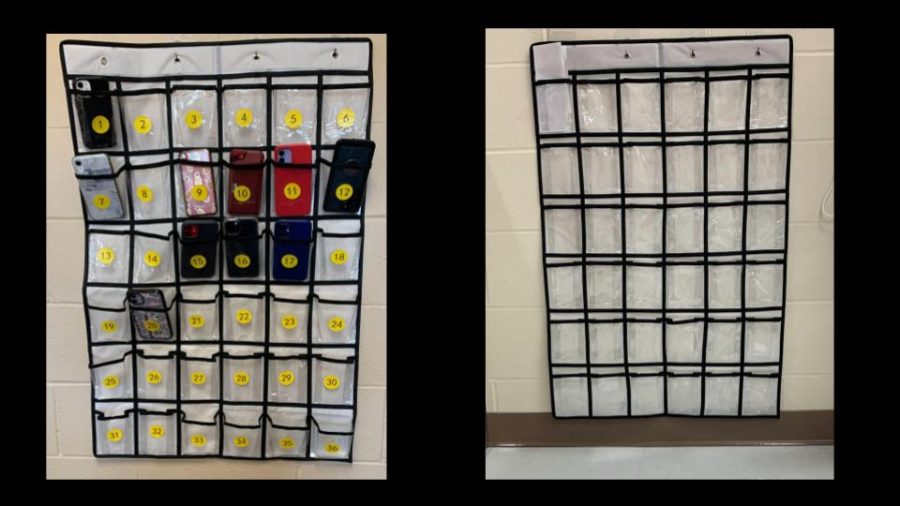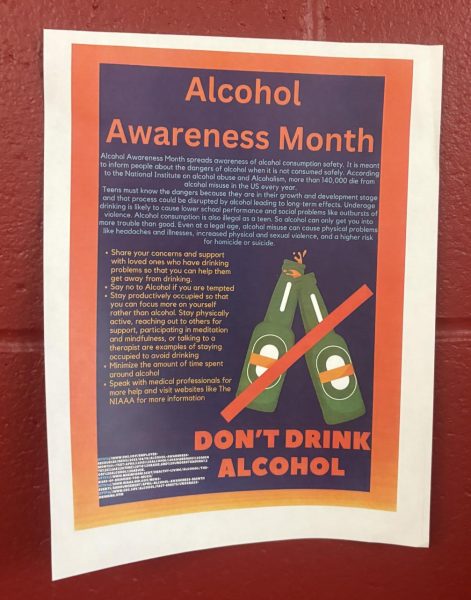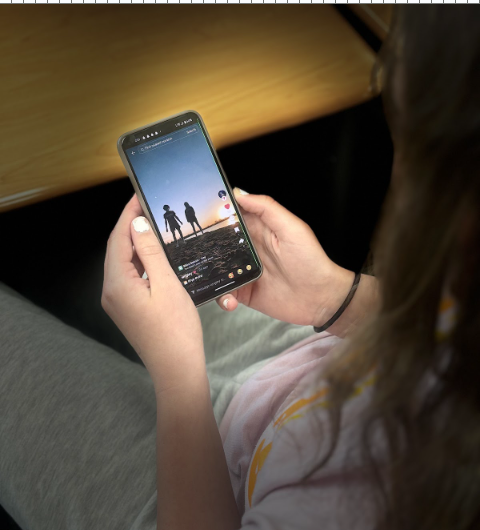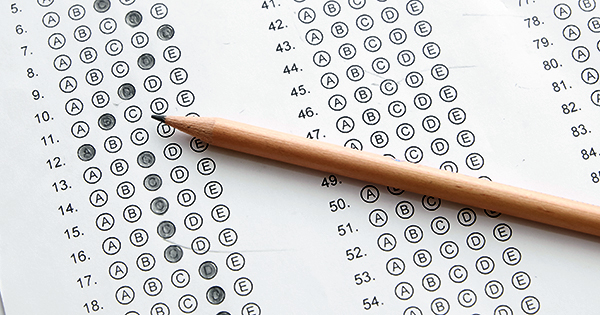New Changes Bring New Student Complaints
Some teachers use number systems to hold students accountable for putting their phones away while others leave it up to the individual person.
September 6, 2022
Parking and phones seem to have no real surface level connection. At the high school, if you mention either, students will definitely have a heated opinion.
This year, the administration and school board has implemented new changes at the high school. The two that stand out the most are the paid parking and the crack down on phone usage.
Paid parking
Starting this year, students are required to pay $15 when registering their cars for parking. Many surrounding schools have been charging for student parking for years but at North Polk, in the past only a car registration was required.
Many students are upset that they have to pay for parking spots, and yet they have no guaranteed spot.
Devyn Boots shared her opinion on the parking situation, “regardless of having to pay for a parking spot there’s no incentive or reward to our payment that justifies paying beyond charging people simply for the benefit of the school.”
Other students note that many schools in the area have senior spots, this means that seniors have assigned spots that they are able to paint and decorate in the school parking lot.
Vice Principal Rob Sinclair noted that there are no future plans for senior spots or assigned spots in the near future.
Phones
Along with parking, phone regulations have not necessarily changed, but the rules have become more streamlined and less forgiving.
Students, like past years, are not allowed to have their cell phones out during class. While some teachers allowed students to use it after work is done, or for certain school projects, this year there are no exceptions allowed.
Everyone knows that having a phone out in Mrs. Connolly’s classroom is certain death, but in other classes students might feel more comfortable to text their friends during class.
This year, when a phone is seen, the teacher is instructed to immediately take the phone and send it down to the office, without any warnings given.
Sinclair noted that, “it also takes the pressure of teachers to do consequences and all that. All of that falls down on me and Mr. Poldberg and Mr. Rixner that will [apply consequences].”
For a first offense with the phones, there is no true consequence besides not having access to it during the rest of the school day; but if it happens a second time, students will get detention.
To help teachers deal with the phone regulations, the school purchased “phone hotels” to put in each classroom. Some teachers allow students to keep their phones in their backpacks as long as they are not seen, while others require students to use the phone holders.
There are many reasons why students are opposed to taking their phones off their person that do not involve the fact that teenagers are supposedly obsessed with their devices.
Personally, I have talked with my family about the phone issue and they have asked me to keep my phone on me at all times to ensure that I will be able to contact them, or vice versa, in an emergency.
Others believe that the school should not have any power over things that students own, or that punishment should only be given to the people that abuse the use of having phones during school, not the ones that do not.
No matter what students think, the pressure of the new rule has definitely left an impact on students.









